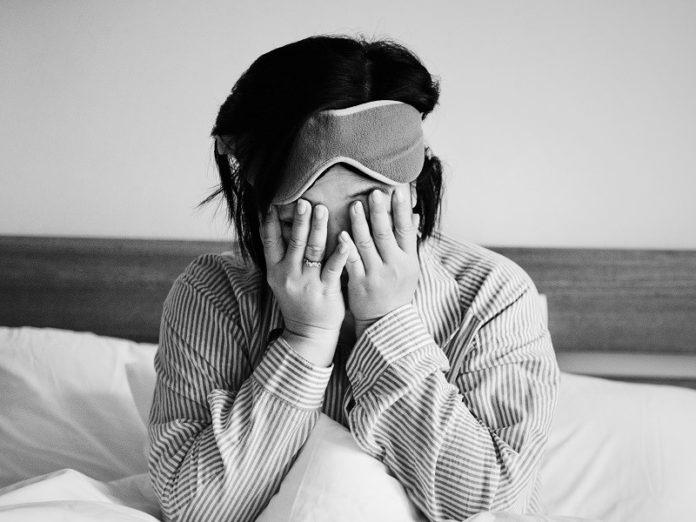Sleep-deprived person could make 30% more mistakes in cognitive tests, a study revealed by the largest sleep study of to date by the Sleep and Learning Lab of Michigan State University.
Published in the Journal of Experimental Psychology, this study is not only one of the largest studies, but also the first to assess how sleep deprivation impacts place-keeping – or, the ability to complete a series of steps without losing one’s place, despite potential interruptions. This study builds on prior research from MSU’s sleep scientists to quantify the effect of lack of sleep has on a person’s ability to follow a procedure and maintain attention.
Result showed, that sleep deprivation doubles the odds of making place-keeping errors and triples the number of lapses in attention. “Sleep-deprived person need to exercise higher caution in absolutely everything that they do, and simply can’t trust that they won’t make costly errors. Oftentimes – like when behind the wheel of a car – these errors can have tragic consequences.”
By sharing their findings on the separate effects sleep deprivation has on cognitive function, Fenn – and co-authors Michelle Stepan, MSU doctoral candidate and Erik Altmann, professor of psychology – hope that people will acknowledge how significantly their abilities are hindered because of a lack of sleep.
The result of the study debunks a common theory suggesting that attention is the only cognitive function affected by sleep deprivation. “Some sleep-deprived person might be able to hold it together under routine tasks, like a doctor taking a patient’s vitals. But our results suggest that completing an activity that requires following multiple steps, such as a doctor completing a medical procedure, is much riskier under conditions of sleep deprivation.”
Also Read: Sleep Problems May Increase Risk for Prostate Cancer
The study recruited and tested 138 people to participate in the overnight sleep assessment; 77 stayed awake all night and 61 went home to sleep. All participants took two separate cognitive tasks in the evening: one that measured reaction time to a stimulus; the other measured a participant’s ability to maintain their place in a series of steps without omitting or repeating a step – even after sporadic interruptions. The participants then repeated both tasks in the morning to see how sleep-deprivation affected their performance.
“After being interrupted there were 15% error rate in the evening and found that the error rate spiked to about 30% among the sleep-deprived group the following morning.”
Meanwhile, the study explained that there are some tasks that people can do on auto-pilot that may not be affected by a lack of sleep. However, sleep deprivation causes widespread deficits across all facets of life, the study concluded.
Also Read: 56% of parents of sleep-deprived teens blame electronic gadgets





